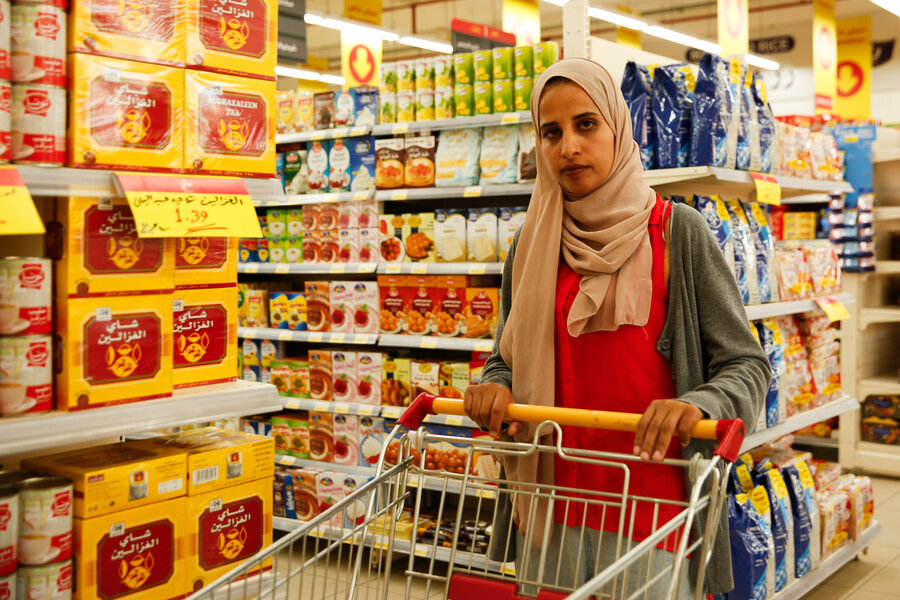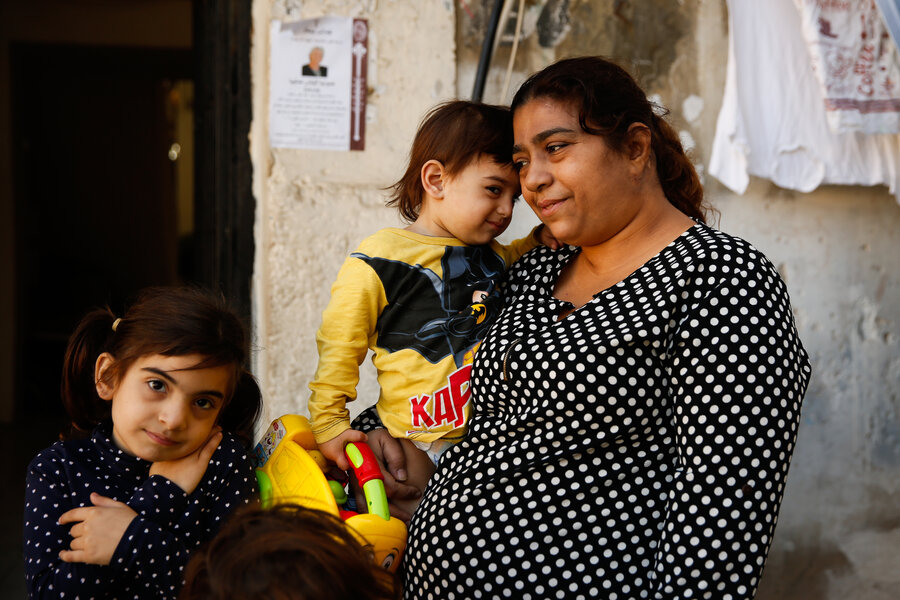The real power of money in humanitarian assistance

Each month in Jordan, Reham gives most of the money she receives from the World Food Programme (WFP) to her mother to buy food for the family. But she saves a small part of it to fund her dream of becoming a teacher.
Fleeing conflict in Ukraine, Sasha and Julia spend their WFP transfer on rent and food for their daughter.
These are just two stories of how cash is helping people through some of the most difficult moments of their lives and helping them build a future where they may no longer need humanitarian assistance.
Based on a decade of evidence, WFP’s new cash policy defines the best way to put money in people’s hands and lay the foundations for greater financial resilience and women’s economic empowerment in the long term. Cash operations make up 35 percent of WFP’s budget and the rise of digital technology and mobile money provides new opportunities for WFP to send money to people in hard-to-reach places.
In 2022, WFP distributed $3.3 billion to over 56 million people in 72 countries, a dramatic increase from 2009 where our cash operations were around $10 million. But the real power of cash goes beyond the dollar value sent to people.
Giving people the power to choose
Kisimba and her family fled conflict in the Democratic Republic of the Congo. By the time they returned, their home had been burned down and their crops destroyed. She was able to repair their home with some of the money she received from cash assistance.
“Between food and cash, I prefer cash because we lost everything. With cash we are better able to address our needs,” said Kisimba.
Most of the money that WFP sends people is spent on food, but we recognize that people have other urgent needs such as rent or medical expenses. WFP trusts people to choose how to spend the money we send them, and we respect their decisions.
Eight months after receiving their first cash transfer, Kisimba’s family were able to grow enough food to meet most of their needs. Kisimba eventually hired workers to help replant fields and was also able to invest in livestock.
Economically empowering women
One of the most exciting changes to cash, is how we are prioritizing women in our cash programming. There will be no end to world hunger without empowering women. It makes so much sense to put more money in women’s hands, because it can add trillions to the global economy. The Bill and Melinda Gates Foundation estimates that delivering humanitarian cash transfers directly to women could lift 100 million women out of poverty. When poverty decreases so does hunger – and this is WFP’s main aim.
In drought-ravaged Somalia, Halima was able to save some of her mobile money transfer every month. She used these savings together with some credit to build a thriving retail business in the displaced camp where she lives with her family.
We want other women to follow Halima’s journey and get access to their own accounts in their own names. This is the gateway to accessing other financial services, like credit and savings, which gives them the possibility to invest in a small business.
The vision laid out in the policy is that when WFP helps women gain their own accounts in their own names – they can also receive any kind of payment whether from the government or from family members abroad.
Read more about Why WFP is putting more money in women’s hand
Supporting government systems
In Beirut, Alice and her family receive money through the Lebanese social protection system. WFP works in coordination with the Government to provide social assistance to approximately 1 million people. For Alice, the days before she receives her money transfer are difficult.

“Sometimes I feel suffocated, because I just can’t, some nights the children sleep on empty stomachs, there is nothing, I wait for them to send it (the money) to me,” she said.
WFP’s work in Lebanon reflects how increasingly we are working side by side with governments to support their national social protection systems. It’s governments that are primarily responsible for looking after their own people, and WFP can use its expertise to help them.
In 2022, 65 governments asked WFP for support so they could set up or strengthen their cash transfer programmes.
Over a decade of experience in cash programming has cemented WFP’s reputation as a trusted world leader in humanitarian cash. We have built our expertise in sending money to people in hard-to-reach places. Our partnerships with governments, the private sector and other UN agencies can take cash operations to the next level to bring a transformative change in people’s lives where they can depend on themselves.
As one of the Syrian refugees who receives mobile money said, “Strength is to help myself, to be dependent on myself, to not to have to extend my hand to people to give to me.”
